Vinegar Clove Cleaning: Your Secret Weapon for a Sparkling Home
I’ve always loved the feeling of a truly clean home, but let’s be honest, harsh chemical cleaners can be expensive, and frankly, a little scary. That’s why I’m so excited to share one of my favorite vinegar clove cleaning tricks with you today! This simple, all-natural method is not only incredibly effective at tackling grime and dirt, but it also offers a surprisingly refreshing scent that will leave your home smelling wonderfully clean.
The use of vinegar for cleaning dates back centuries. Our ancestors understood the power of this humble ingredient long before the advent of modern chemical cleaners. In fact, vinegar’s antimicrobial properties have been utilized for centuries for preserving food and maintaining hygiene. Combining it with the aromatic power of cloves elevates this age-old technique to a whole new level of effectiveness and pleasantness.
Why should you try this vinegar clove cleaning method? Well, for starters, it’s incredibly budget-friendly. You likely already have vinegar in your pantry! Secondly, it’s completely safe for your family and pets, unlike many commercially available cleaners that contain harsh chemicals. And finally, it’s remarkably effective at removing stubborn stains and odors from a variety of surfaces. From sparkling countertops to brilliantly clean sinks, this DIY solution will become your new go-to for a naturally clean and fresh home. Get ready to discover the magic of vinegar clove cleaning!
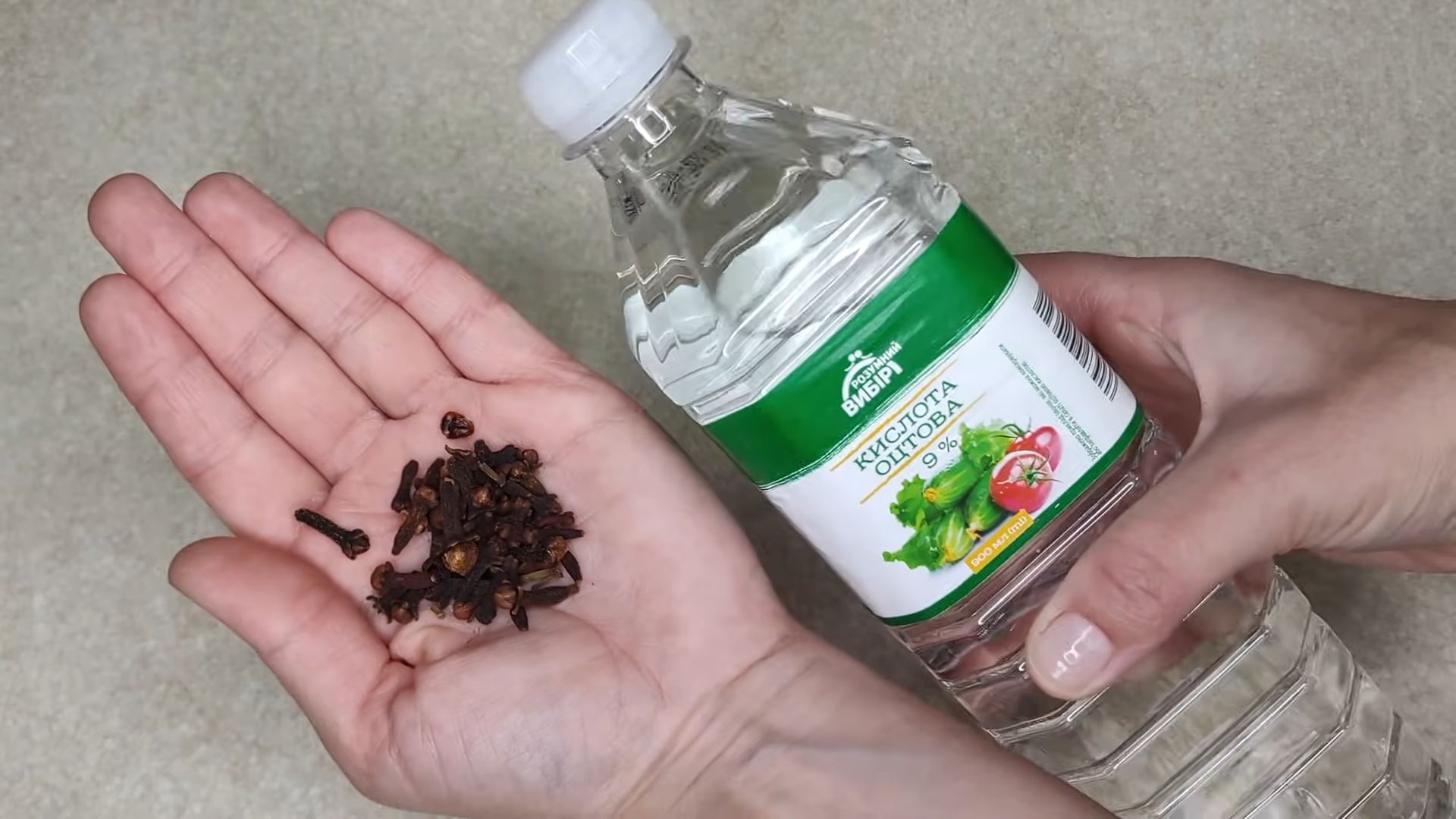
Cleaning with Vinegar and Cloves: A Powerful DIY Hack
I’ve always been a fan of natural cleaning solutions, and this vinegar and clove method is one of my absolute favorites. It’s incredibly effective for cleaning and deodorizing, and it’s super easy to make. Let’s dive in!
Gathering Your Supplies
- White vinegar (distilled is best)
- Whole cloves (the more, the stronger the scent)
- A heat-safe glass jar or bottle with a tight-fitting lid (at least a quart size)
- A funnel (optional, but helpful)
- Spray bottle (for later use)
- Cheesecloth or a fine-mesh strainer (for straining the mixture, optional)
Making Your Vinegar-Clove Cleaning Solution
- Measure your vinegar: Start by filling your glass jar about ¾ full with white vinegar. I usually use a quart jar, but you can adjust the amount based on your needs. Remember, you can always make more!
- Add the cloves: This is where the magic happens! Add your cloves to the vinegar. There’s no exact science here – the more cloves you add, the stronger the clove scent will be in your final cleaning solution. I typically use about 1/4 cup to 1/2 cup of cloves for a quart jar, but feel free to experiment. A good rule of thumb is to add enough cloves so that you can see them easily throughout the vinegar.
- Seal and shake: Secure the lid tightly on your jar. Give it a good shake to distribute the cloves evenly throughout the vinegar.
- Steep the mixture: This is the most crucial step. Place your jar in a cool, dark place for at least two weeks. The longer you let it steep, the stronger the cleaning and deodorizing power will become. I usually let mine steep for four weeks for maximum effectiveness. During this time, give the jar a gentle shake every few days to keep the cloves suspended in the vinegar.
- Strain (optional): After the steeping period, you can strain the mixture if you prefer a cleaner look and to remove the cloves. Simply pour the mixture through a cheesecloth or fine-mesh strainer into a clean container. If you don’t mind the cloves remaining, you can skip this step.
- Transfer to a spray bottle: Once strained (or not), pour your vinegar-clove solution into a spray bottle. This makes it much easier to use for cleaning.
Using Your Vinegar-Clove Cleaning Solution
Now for the fun part – using your homemade cleaner! This versatile solution can be used for a variety of cleaning tasks around your home. Here are some of my favorite uses:
- All-purpose cleaner: Spray directly onto surfaces, let it sit for a few minutes, then wipe clean with a microfiber cloth. It works wonders on countertops, sinks, and even floors (test a small area first to ensure it doesn’t damage the surface).
- Bathroom cleaner: This is particularly effective in removing soap scum and mildew. Spray on shower walls, tubs, and toilets, let it sit for a few minutes, then scrub and rinse. The clove scent will leave your bathroom smelling fresh and clean.
- Deodorizer: Spray lightly in the air to eliminate unpleasant odors. It’s great for pet areas, garbage cans, and other smelly spots. The clove scent is a natural air freshener that’s much better than harsh chemical air fresheners.
- Glass cleaner: Spray on glass surfaces, then wipe clean with a lint-free cloth for streak-free shine. I find it works just as well as commercial glass cleaners, if not better!
- Laundry additive: Add a cup or two to your washing machine to help freshen and deodorize your laundry. This is especially helpful for removing musty smells from towels and other fabrics.
Tips and Precautions
- Always test a small, inconspicuous area first before using this solution on any delicate surfaces or fabrics to ensure it doesn’t cause damage or discoloration.
- Avoid using this solution on polished wood or stone surfaces as the vinegar’s acidity may damage them.
- Never mix vinegar with bleach. This creates a dangerous chemical reaction that can release toxic gases.
- Store your solution in a cool, dark place to maintain its potency and prevent the vinegar from losing its strength.
- The clove scent is quite strong. If you’re sensitive to strong smells, you may want to start with fewer cloves or dilute the solution with a bit of water.
- Make sure the jar is tightly sealed to prevent evaporation and maintain the strength of the solution.
- This solution is not a disinfectant. While it’s effective at cleaning and deodorizing, it won’t kill all bacteria and viruses. For disinfecting, you’ll need to use a separate disinfectant product.
Troubleshooting
- If the scent is too weak: Add more cloves to the mixture and let it steep for a longer period.
- If the scent is too strong: Dilute the solution with water before using it.
- If the solution becomes cloudy: This is normal and doesn’t affect its cleaning power.
Beyond the Basics: Experimenting with Scents
While cloves are my favorite, you can experiment with other spices and herbs to create different scents. Orange peels, cinnamon sticks, or even rosemary sprigs can add unique aromas to your cleaning solution. Just remember to adjust the steeping time accordingly, as some ingredients may require longer to infuse their scent into the vinegar.
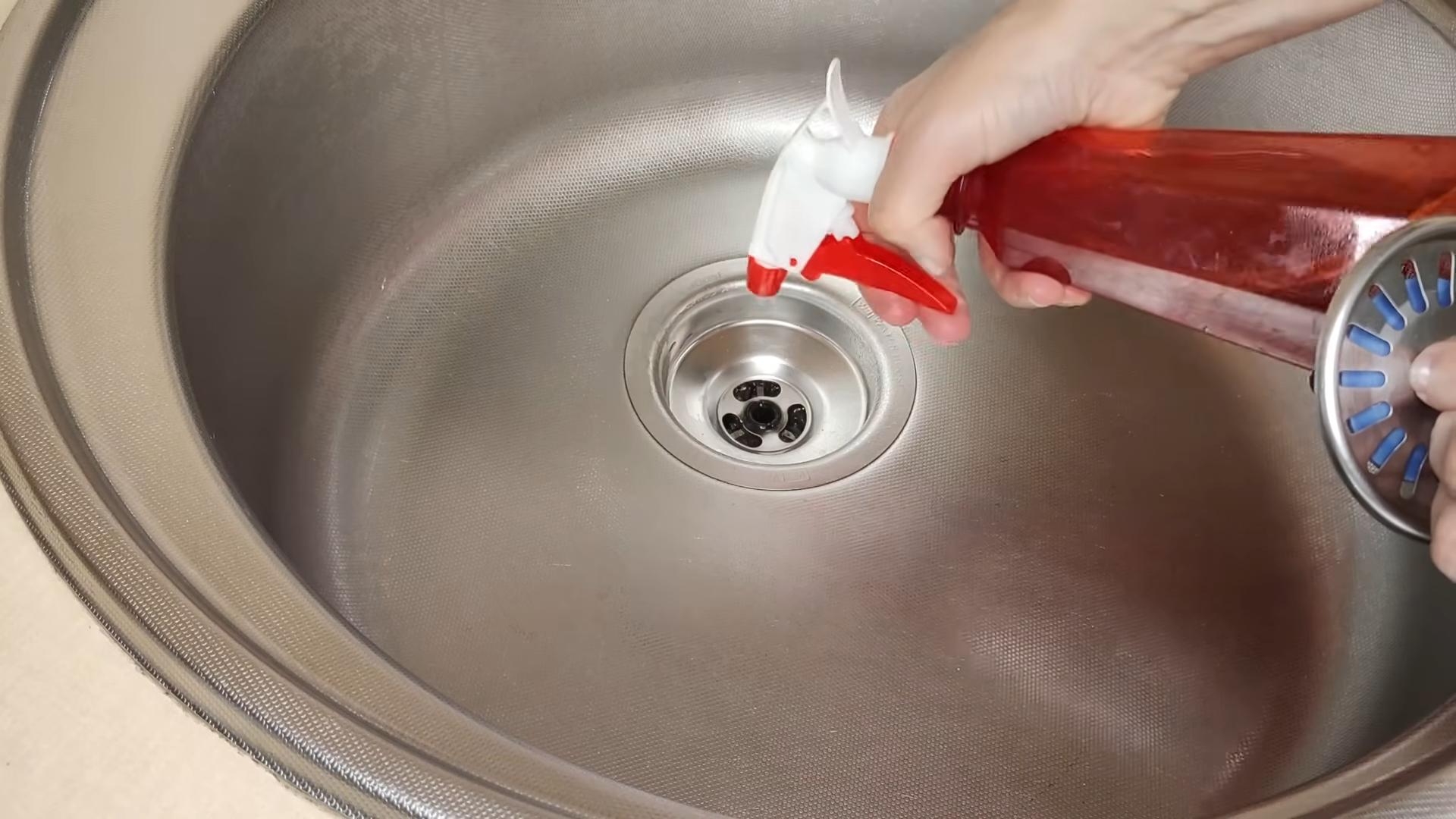
Conclusion
So there you have it – a simple, effective, and surprisingly powerful cleaning solution using just vinegar and cloves! This vinegar clove cleaning method isn’t just about sparkling surfaces; it’s about harnessing the natural power of readily available ingredients to achieve professional-level cleaning results. Forget harsh chemicals and their potentially harmful fumes; this DIY trick offers a safe, eco-friendly, and cost-effective alternative that’s gentle on your home and your health. The subtle, warm aroma of cloves adds a pleasant touch, transforming a chore into a slightly more enjoyable experience. The combination of vinegar’s acidity, which cuts through grease and grime, and the antimicrobial properties of cloves, which help eliminate bacteria and odors, makes this a truly unbeatable cleaning duo. You’ll be amazed at how effectively it tackles stubborn stains, leaving your kitchen, bathroom, or any other area you choose to use it in, sparkling and fresh. This isn’t just a cleaning method; it’s a testament to the power of simple, natural solutions. Give it a try – you won’t be disappointed!
We strongly encourage you to experiment with this vinegar clove cleaning method and share your experiences with us. Did you find it particularly effective on certain surfaces? Did you discover any unexpected benefits? Let us know in the comments below! We’d love to hear about your successes and any modifications you’ve made to personalize this versatile cleaning solution. Perhaps you’ve found a unique application for this powerful duo that we haven’t even considered! Your feedback will help others discover the joy and effectiveness of this simple yet powerful cleaning technique. Let’s build a community of natural cleaning enthusiasts together!
Here are some suggestions for variations and applications to further enhance your vinegar clove cleaning experience:
Variations on the Vinegar Clove Cleaning Method:
* Strength Adjustment: Adjust the ratio of vinegar to cloves based on the intensity of the cleaning task. For heavily soiled areas, you might consider using a stronger concentration of vinegar and more cloves. For delicate surfaces, a weaker solution might be preferable.
* Essential Oil Infusion: Enhance the aroma and cleaning power by adding a few drops of your favorite essential oil to the vinegar clove mixture. Lemon, tea tree, or lavender oils are excellent choices, each offering unique cleaning and aromatic benefits.
* Targeted Cleaning: For specific cleaning tasks, such as removing stubborn water stains from glass or cleaning grout, you can create a paste by combining the vinegar clove mixture with baking soda. Apply the paste, let it sit for a few minutes, then scrub and rinse.
* Spray Bottle Application: For easier application, transfer the vinegar clove mixture to a spray bottle. This allows for targeted spraying and reduces the need for soaking or scrubbing.
Different Applications:
* Cleaning Cutting Boards: Effectively sanitizes and deodorizes cutting boards, removing lingering food odors and bacteria.
* Cleaning Countertops: Removes grease, grime, and food spills from various countertop materials (always test on an inconspicuous area first).
* Cleaning Sinks and Drains: Helps eliminate odors and bacteria from sinks and drains, leaving them sparkling and fresh.
* Cleaning Glass and Mirrors: Leaves glass and mirrors streak-free and sparkling, without the harsh chemicals found in commercial cleaners.
* Cleaning Floors (Tile and Wood): Dilute the mixture appropriately for use on floors. Always test on an inconspicuous area first to ensure it doesn’t damage the surface.
Remember to always test any cleaning solution on a small, inconspicuous area before applying it to a larger surface.
Frequently Asked Questions (FAQs)
How long should I let the vinegar clove mixture sit before cleaning?
The soaking time depends on the level of soiling. For lightly soiled surfaces, a few minutes might suffice. For heavily soiled areas, allowing the mixture to sit for 15-30 minutes, or even longer, can significantly improve cleaning results. You can even let it soak overnight for particularly stubborn stains.
Can I use this method on all surfaces?
While this method is effective on many surfaces, it’s crucial to test it on an inconspicuous area first. Avoid using it on surfaces that are sensitive to acidity, such as marble or unsealed wood. Always refer to the manufacturer’s cleaning instructions for specific materials.
What happens if I use too much clove?
Using too many cloves won’t harm your surfaces, but it might result in a stronger, more intense clove aroma. Adjust the clove quantity to your preference.
Can I store the leftover vinegar clove mixture?
Yes, you can store the leftover mixture in an airtight container in a cool, dark place for future use. The effectiveness might slightly decrease over time, but it will still retain its cleaning properties for several weeks.
Is this method safe for pets and children?
While vinegar and cloves are generally considered safe, it’s always best to keep cleaning solutions out of reach of pets and children. Proper ventilation is also recommended when using vinegar-based cleaners.
What are the benefits of using cloves in cleaning?
Cloves possess natural antimicrobial properties, helping to eliminate bacteria and odors. They also add a pleasant, warm aroma to the cleaning process.
Can I use this method to clean my oven?
For light oven cleaning, this method might be helpful. However, for heavily soiled ovens, a more powerful cleaning solution might be necessary. Always test on an inconspicuous area first.
Are there any potential drawbacks to this method?
The main drawback is the strong vinegar smell, which can be overpowering for some people. Good ventilation is essential. Also, remember to always test on an inconspicuous area before applying to a larger surface to avoid potential damage.
How often can I use this vinegar clove cleaning method?
You can use this method as often as needed, depending on your cleaning schedule and the level of soiling. For regular cleaning, using it once a week or even more frequently might be beneficial.
Where can I find cloves for this cleaning method?
Cloves are readily available at most grocery stores, spice shops, and online retailers. You can purchase them whole or ground, but whole cloves are generally preferred for this method to maximize their aroma and cleaning power.

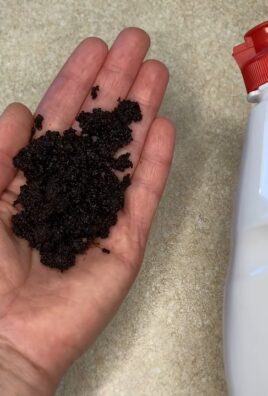
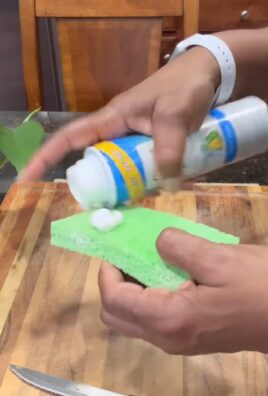
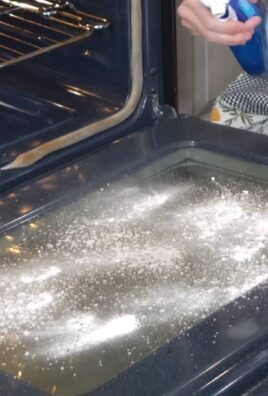
Leave a Comment